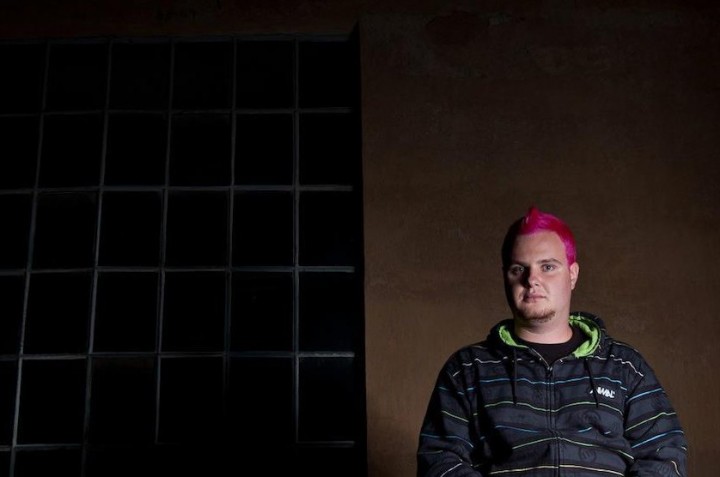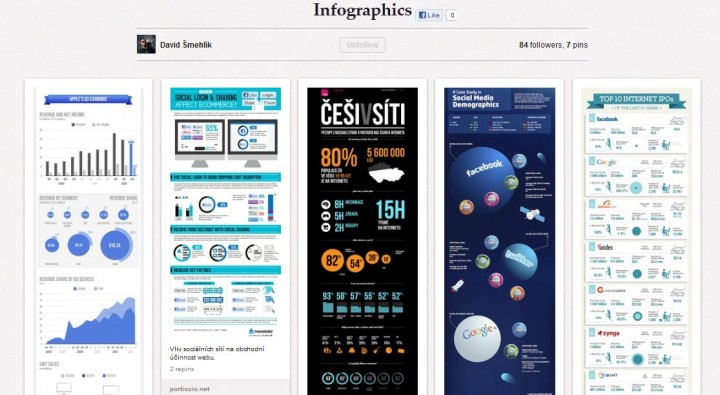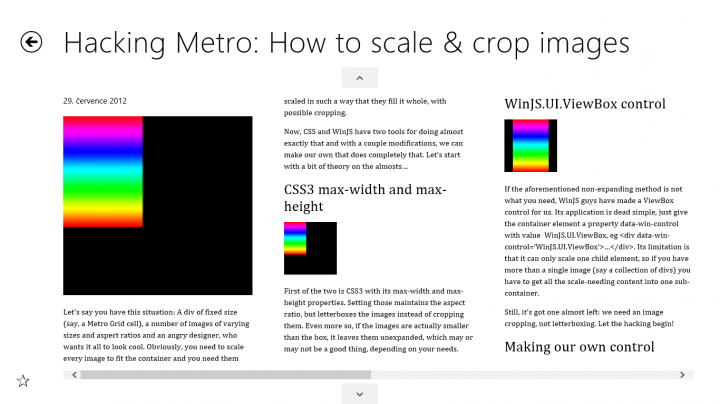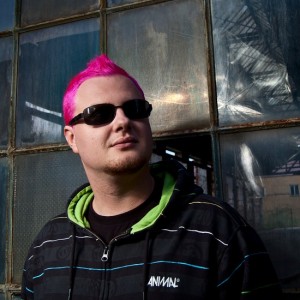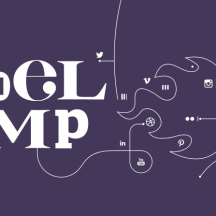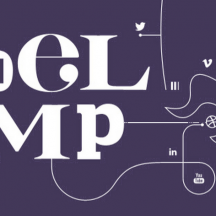David „Duf“ Šmehlík has been around the Czech tech scene for quite some time. When we met for the first time, he interviewed me about my work at mBank and in the end it was not only one of the best interviews I ever gave (if not the best one), but a beginning of a long term friendship. Therefore, after four years, it‘s about time for me to exchange our roles.
David, one thing always intrigues me. Tell the readers, how old are you?
I‘m 23. I started getting involved in the digital media industry when I was about 13-14, and in the business when I was 16.
What is it like to be an entrepreneur at 16?
I thought it’s pretty cool at that time. But it’s not easy. Even if you have reasonable ideas and decent clothes, your business partners often don’t take you seriously.
Your first company concentrated on web design. But let’s move on to Fleveo. It was one of the first companies to focus solely on social media, mostly apps. But it was still quite invisible except for the insiders. Though your campaigns gained a lot of success, the cream was taken by the advertising agencies. Looking back, what is your attitude towards it?
I think it was an inevitable step. The clients big enough to have the budget for social media campaigns were not used to work with small, specialized agencies and so the cooperation with digital or media agencies was the only chance to get our hands on the deals. Often the clients were part of multinational environment and the agency for them was chosen on a global scale.
The result of such a cooperation was also probably our most successful Facebook campaign ever – Nemyslíš, zaplatíš (If you don’t use your head, you’ll pay for it), which we prepared as a part of a major campaign for Ministry of Transport together with Euro RSCG.
Please, tell us more about it.
Back in 2009 it was one of the first really big viral campaigns on Czech Facebook and it reached over 300 thousand people. The first idea came from the agency and it was a pretty cool one. We were also lucky that it was quite a shocking one – the app was called ‘Will I make it till the end of the year?’ and it was meant to raise awareness about safe driving. It worked basically as a quiz that would generate your driving license and depending on your answers it showed a message saying “you have 37% chance that you will live till the end of the year”. The photo you chose / uploaded, would be altered with blood or bruises etc. All that was simply cool and people shared it a lot. I still believe it was one of the best Facebook campaigns created in the Czech Republic. Moreover, we didn’t need any budget for PPC, all the attention was grabbed organically. But of course we were supported by many media assets (news servers, press) and we had some really shocking videos.
Let me add one important point I often repeat: Facebook is not a miraculous cure. When planning, you should go for synergy using other channels, whatever you have in stock – traditional media, newsletter, press releases, everything you can use.
You have quite some experience dealing with both agencies and clients. What do you think about the maturity of the Czech market regarding social media? It’s clear that we don’t have the budget of German projects made for a significantly larger market – but do we at least follow the trends?
I think the major problem is that most of the agencies and clients don‘t have a separate budget for social media – it’s hidden somewhere among other “digital” expenses. If you ask a company about their budget, they would tell you “We think we’ll have it maybe the next year”. Because otherwise it’s the question who is in charge of social media in the end – from what I saw, most companies simply don’t have the right people who are able to run it on their own.
What reasonable budget would you suggest for a bigger company active in social media, focusing on B2C that wants to “do it right”?
I think it could be somewhere between 5 to 10% of the whole digital budget per year.
And what about the developers and creative people – can we bring competitive solutions?
My opinion is that we are highly above average in the Czech Republic. Our developers are doing a great job and there’re plenty of people who would belong to the very top – given the chance to prove what they can do on a bigger market or with a higher budget. But it’s complicated to create a great campaign within the limits we have here.
We both watched how the engagement went rapidly down when the Timeline for Pages was introduced and the “custom tab industry” was almost destroyed overnight. What do you think has been the reason for such a change on the side of Facebook?
I think it’s quite simple. The investors asked about the rise of ad revenue and Facebook sent a clear message cutting off the virality of the Facebook environment: if you want to be seen, you should buy more ads and more promoted posts.
So you think it’s impossible to create a campaign without ads these days?
I would say it’s still possible. But if there were rare exceptions, i.e. campaigns that made it big without ads before, these would be VERY rare exceptions now. On the other hand, the Timeline revealed the importance of great content delivery to companies, 90% of their presence has shifted towards the posts in which you engage with your audience. This used to be underestimated by companies and now they finally see that Content is the king in social media, too. If you don’t have the content, you don’t have anything.
Be honest. Do you think investing money into Facebook apps pays off for at least for some of the companies? It seems to me that the “quest for fans” is often self-sustaining, that companies want just to have big numbers and don’t know much about what to do next.
I don’t see it this way. It’s about the metrics and about who is in charge of setting them. My experience is that if social media is managed by a marketing manager (an archetypical evil person), then usually these people show numbers, nothing else. You have to defend your position and show numbers that would convince the others that the money was well invested. And the number in question has to be big enough – whatever it means.
In some of the cases, you were in charge of the Page administration. What have been your goals in such cases?
I guess I was lucky that I often met people who were reasonable enough and listened to us. And we were able to explain what it means, what to measure. You can’t think of a client without any experience in the field who is ready to set goals – you’re here to lead them, to show them what can be done and what to look for. And you have to play fair – because if you don’t, somebody else will come and show them the naked truth. There’s a difference in cooperating with clients directly, because when you do it for an agency, the only thing is usually to fulfill some numbers, and you don’t go deeper.
Do you have an example of such cooperation in hand?
I really like Neoluxor – it’s one of the biggest bookstore chains in the Czech Republic, they have a Page with quite a number of fans, but they care for the engagement, not chasing thousands of fans for no reason. They understood it’s better to have six out of twelve thousand active fans, than to have fifty thousand inactive ones. We cooperate there with an agency called Refresh and the trick is the continuity – it’s not only about copywriting, it’s about strategy, because in the end it makes sense.
Now that’s something for me – you know I am not a big fan of social media outsourcing. Wouldn’t it make sense for them to have the content manager in-house?
But that’s it! The guy who’s in charge is their employee, he takes care of answering, he’s responsible – what we do is the strategic part. Because the person doing the daily fight can hardly keep up with the news Facebook is pushing.
A social media company – who are your employees? Who is on the team?
Project manager, content editors, frontend coders, backend developers, user experience designer, graphic designer, office manager and me. 
Facebook is unquestionably number one. But as we’re both avid Twitter users, I have to ask – what about the other social networks? Twitter, Google+, Pinterest? Or maybe something else? In which cases would you recommend something other than Facebook, if ever?
I’m on maybe 90 % of social networks that made it to our country many of those popular abroad, and some of those that are still very fresh even in US. Personally, I like Twitter much more than Facebook. I like social networks and Twitter is a place to meet people I find interesting – and not only locals. So to me it’s number one for fresh news and social conversation.
What about other networks?
Frankly, I don’t care about G+, it’s too geeky (meaning that the people there are too geeky) for me. I really like Pinterest. Not that I think you or I are the target group, though. But it’s cute and I believe it might take off even in the Czech Republic. I use it for collecting infographics. I like them and it proved to be the best source in a lovely package.
OK. Back to the fresh news – you just recently co-founded an ambitious start-up called Druidly. You revealed quite recently it should be a “platform as a service” project for creating Windows 8 applications for small and medium content creators (iOS and Android apps to follow). What does it actually mean?
This project allows you as a publisher to enter a new market with very low entrance costs. We haven’t released the pricing publicly yet, but we claim this: if you are about to have an app created specially for you, the costs are such that using Druidly, it takes five years to get to this sum – and you won’t have many benefits of Druidly. In this market, companies creating apps charge the clients plenty of money, way too much if you ask me.
As a rather smallish content publisher, why should I want a mobile app in the first place?
We chose Windows 8 for a couple of reasons; one of them is the fact that Modern UI is a one big RSS reader. Live tiles give you notifications about anything and everything (it’s going to be the default interface for Win8). So you’ll pin your favorite sources of information, be it the BBC1 or Gary Vaynerchuk or anything else.
Can I have the RSS feed itself there?
As a publisher, you want people to use Druidly and not the RSS feed. That‘s because there is more to it than just delivering your content – it’s measuring the results. What is the behavior of the users – how much time do they spend in the app, do they finish reading the articles, how do the results differ due to the platform? And it doesn’t stop there. After using the app for some time, we get to know the user and we serve him the preferred content. So in the end it delivers a personalized content stream.
I see. Do you count on the support by Microsoft? It’s them who need as many apps as possible to be ready for the new platform, right?
We’ve gone through training on Win8 design guidelines – as one of only 93 companies worldwide. Being one of the very first in this market is really an advantage. And we’re in talks with Microsoft about some form of support, as I believe we can help them to have many new apps, and they will need it badly if they want to seriously challenge Android and iOS. There aren’t many developers in CEE, and Windows Store must not be empty.
Do you think you can launch the product with global ambitions from Prague? I saw you went to the USA to create a company, and that’s probably very necessary to do so.
You can start it right here. I’m convinced there are many great people in the Czech Republic, many talented developers etc. So the team will probably stay here, at least for some time. However, that doesn’t mean I and Martin (Martin Malý, the other co-founder) are going to stay here. If we want to succeed, we have to move on. We applied for quite a famous accelerator Springboard, as they announced Springboard Mobile. We want to meet entrepreneurs from Berlin right now, work with them, learn something new – and of course create contacts that will help us break through on an international level.
London, NY, Silicon Valley?
I don’t think there’s a big difference. Given the choice between Springboard and Y-Combinator, I would go for Y-Combinator since the ecosystem around it is more mature. On the other hand, what attracted me on SpringBoard, was actually the European location. Watching the Czech start-up scene, everyone wants to head for California, every start-up dreams of the American market. But why? There’s Europe, there’s an enormously large market – Russia itself. Why not to go to European markets and then follow with the USA.
You haven’t released anything yet, but you’ve already written on Twitter that some big fish among angel investors are interested in Druidly. Why is that? 
It’s true that we haven’t spent a dime on marketing; we just haven’t talked to the public at all. But at the same time, the fact we are starting something made some interesting people to ask us – guys, what you’re up to? And we were happy to talk to them, maybe tens of people helped us realize we were on the right path, and some of them gave us valuable contacts or introduced us to their friends abroad.
Do you invest your own money or do you have an investor already?
It’s our money, but we have had talks with a Czech guy who is willing to help us with the early stage funding. He’s a pro and a great guy, so we believe this will be a truly beneficial step and it’s not “just” the money. (Once the interview was over, they announced more details in a blog post, and the investor is Milan Votava, a well-known Czech entrepreneur).
How much does it cost to start such a project?
We minimized most of the costs since the people who are involved are involved in the company. I believe giving shares to the core team is a smart way of getting the best out of them – they know they are working on something that may pay off for them in the long run.
Start-ups are the hot topic of the year in the Czech Republic. There are already accelerators and mentors. Olda Neuberger has created GlobalStartups.cz as a platform where ambitious start-up individuals can meet. But isn’t it a bubble?
I’m glad it started – but one thing should be stated. Not every company is a startup. Now a guy sets up a team of coders and starts creating e-shops and calls it a startup. That’s just not true. And another problem is the lack of real investors, because as I see it, it’s not just about a handful of cash. It’s much more about experience and about international contacts. You need this to be a real investor in this area. And the third problem is lack of a business model in many cases. I don’t believe in creating startups that gain a bazillion of users with no reasonable idea how to monetize them. I see how the startups create new possibilities in Europe; I’d like to mention specifically the Berlin start-up scene.
Now there’s the Czech state and the plan to put CZK 0.86 billion (mostly from the EU funding or German taxes) into startups. It seems crazy – there’s no chance to invest such a large amount of money in a reasonable way. Or is there?
Maybe not today. But I wouldn’t write it off. I think it’s a good thing that the state has actually started to realize there is something like startups and that it might be a good thing to help them. There are much worse ways how to spend our money than this. I know many people are totally against it. But I don’t like people shouting: “It’s nonsense.” I’d love to hear the investors saying: “We want to engage, to make it more rational, to help the state to invest in good projects, to shape it somehow.” The potential is huge, but the state should start the dialogue with the right investors.
Who is your favorite among other startups?
I had a great lunch with Jakub Nešetřil from Apiary.io who recently went through Springboard and I think they’re worth watching. And the most successful in the area I watch is definitely SocialBakers – I’m sure they’ll make it big soon and I’m happy about it.
(David is another Czech Twitter freak passionate for music as you can see hear!)
Where do you see yourself in five years?
A good question indeed. For quite some time I’ve lived like there’s no tomorrow. In five years… I hope I am in a similar situation – working on a great project with a bunch of cool people (maybe even a similar team to the one today). Maybe it won’t be Druidly – be it because we scrap it or sell it. I’m not the guy who would rest for a long time. If we sell it, I might spend half a year relaxing on the beach with a drink – but during that time I will try to find the next interesting thing to get my hands on again. Because if there’s something I’m good at it’s spotting where to go next before the others do.
Five tips from David Šmehlík
-
It might sound like a cliché, but the team I have, are one of the best people I’ve ever met in online business. Take the time and surround yourself with the very best people.
-
If you want to start engaging in social media, think twice: do you know why, do you have time, are your customers happy with your product? Social media should not be treated like “erm, we give it a try”. Even the best communication won’t fix the product bugs.
-
You have a dream? Follow it! I started many projects and some of them never took off, because there was not enough time and will to work on it for real. If you really believe in it, you have to show it with your dedication.
-
When dealing with the agencies, don’t sell yourself short. They will try various tricks, but in the end you shall not forget they need you.
-
Know what you are worth. One of my mistakes was to lower the costs in order to win every possible deal. It’s not worth it. You don’t have to be the cheap one. Be the good one and better projects will follow.
the next big thing catcher
david.smehlik.com
- @davidsmehlik
- davidsmehlik
- davidsmehlik
